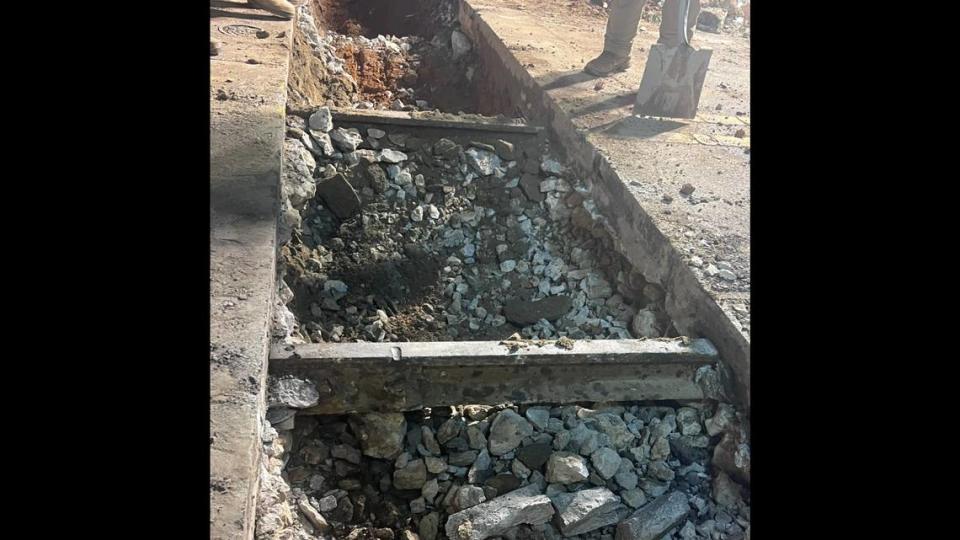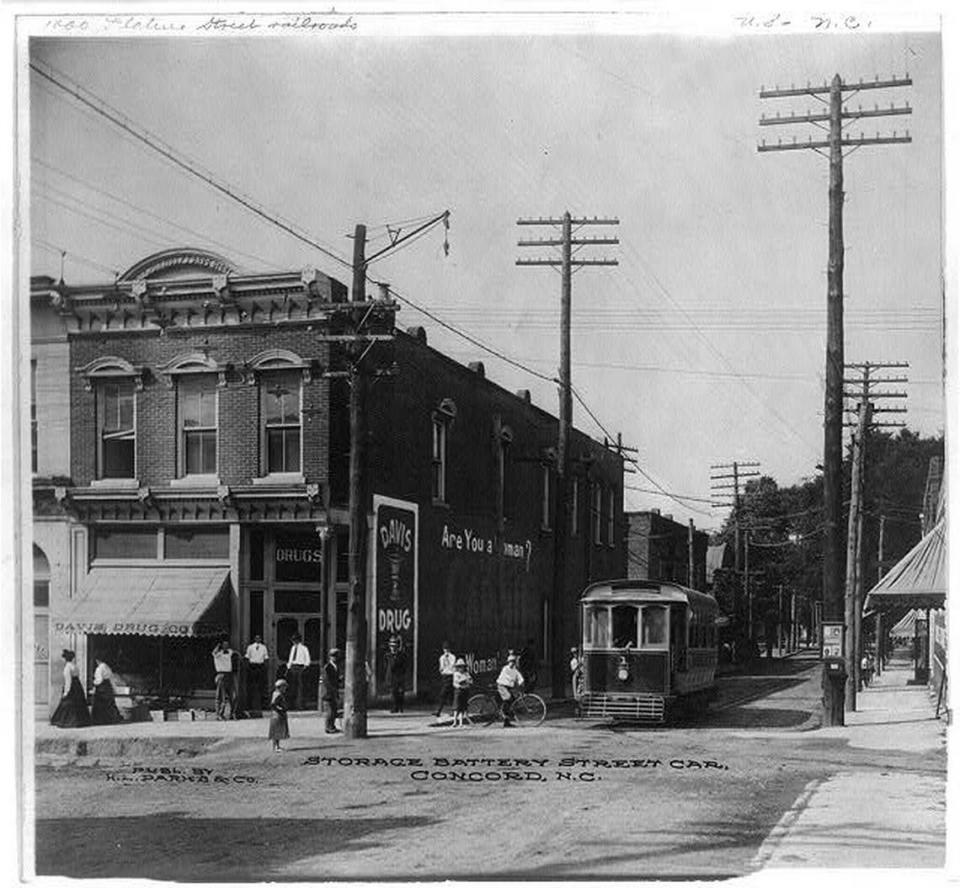NC city gets ‘up close look’ at bygone era after digging up road to fix a pipe
After more than 100 years of being buried, a team of workers trying to repair a sewer line in Concord recently stumbled upon something from a bygone era.
Trolley tracks were found under what was then called Depot Street prior to the 1960s, now known as Cabarrus Avenue.

The tracks originated in the 1900s via a company that was started by men from Philadelphia, according to Carolana.com.
Located in downtown Concord, the tracks are a former centerpiece of the town and replaced a street car track system first built decades earlier.
The City of Concord posted about the findings last week on its Facebook page: “We’ve heard all about the trolley tracks left underneath the streets of Downtown Concord NC and finally got an up close look at them last week.”
Trolley’s backstory
Horse-drawn streetcars made their way to North Carolina in the cities of Wilmington and Raleigh in 1887. They were then soon powered by electricity with the first fully electric one being in Asheville in 1899, according to NCpedia.
The Concord Railroad Company started building steam railroad tracks in 1889, making the first tracks in the city. The railroad company only lasted six years.
The trolley tracks discovered last week belonged to the North Carolina Public Service Company. The company owned tracks in other local cities like Salisbury and High point. Its service began in Concord in 1911. The streetcars were battery operated streetcars, made by Edison Electric Company.
In an article published on May 12, 1921, the Raleigh News and Observer reported that “the street car business appears to be on its last legs in Concord.” This came after a report of not enough income at the time to keep the street car system alive.
The rail company stopped service in Concord around 1925 and soon after The Duke Power Company bought it, according to Carolana.


